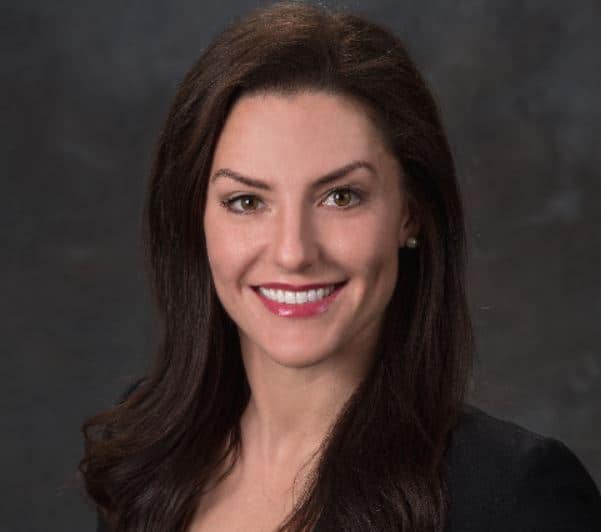PINELLAS COUNTY, Fla.- President Donald Trump continues to discourage future COVID-19 lockdowns amidst the nation’s increasing mental and physical health problems attributed much to isolation. A case of preferred therapy possibly denied over a Florida Non-Compete Agreement brings the administration’s concerns too close to home.
Tampa attorney Margaux L. Payor has filed a Declaratory Judgment in Pinellas County against Advantage Mental Health Services, LLC and Nikki, David, William, Monique, and Suzanne Hervey, Stephen and Michael Facques, and John Odette. It was filed on August 12, 2020, requesting “Declaratory and Injunctive Relief and Request for Emergency Hearing.”
According to the Declaratory Judgment, Ms. Payor recently lost someone near to her to suicide and cited that struggling more significantly with the increasing panic from the COVID pandemic was a major concern. Ms. Payor, representing herself, states in the Judgment that her mental health is deteriorating and steadily declining and that an Emergency Hearing is needed to “prevent more damage to the Plaintiff’s well-being.”
Ms. Payor is attempting to see her three-year therapist, Danielle Thomassy, LCSW, who opened her own practice after serving at Clearwater-based Advantage Mental Health Services. In April 2020, Ms. Thomassy submitted her resignation to “Advantage.” Ms. Payor was a patient of Ms. Thomassy’s from February 2017 until April 2020 when Ms. Thomassy left the mental health service. On or about April 20, Defendant Nikki Hervey contacted Ms. Payor, indicating that Ms. Thomassy was no longer available through their services, but that Payor could be re-assigned to another of Advantage Mental Health Services therapist.
Ms. Payor said she wanted to continue with Ms. Thomassy at her new practice. Later in the week, Payor was informed by her therapist, Ms. Thomassy, that she couldn’t see or speak to Ms. Payor as a patient. Ms. Payor called numerous times to learn the reason why she could not see her therapist, but Advantage Mental Health Services never gave a reason.
On May 6, 2020, Ms. Payor emailed Advantage Mental Health and the Declaratory Judgment’s other Defendants, stating she wished to terminate her relationship with the practice and only continue treatment with Ms. Thomassy, as Ms. Thomassy knew her personal history well after three years of therapy. She also expressed she felt “Advantage” was interfering with her treatment and that legal action may be necessary.
According to the Declaratory Judgment, on or about May 8, Advantage Mental Health Services’ attorney, Matthew LaPointe, made contact with Ms. Payor and explained that Ms. Thomassy had agreed not to treat patients of Advantage Mental Health Services after termination, and that “Noncompetition Agreements are perfectly legal pursuant to Florida Statute 542.335. Such Agreements are commonly used in the healthcare field to protect the legitimate business interests of the practice.” Mr. LaPointe threatened Florida Statute 57.105 sanctions and attorney’s fees against Ms. Payor if she continued to insist on seeing Ms. Thomassy. The sanctions confront plaintiffs and their attorneys who produce a lawsuit that is “not supported in the application of then-existing law,” meaning, employers can make those suing pay if they attempt to sue without a law to back it up. A copy of the correspondence from Mr. LaPointe was attached to the Declaratory Judgment as Exhibit B.

In an interview with Ms. Payor, she stated, “I am filing declaratory actions so a judge can maybe say, okay, you can see the therapist until we figure out what any existing contract (if there is one) says, and what is legal and what is not. I want to pursue the fact they shouldn’t be able to deny me therapy – I want to stay mentally stable and healthy. I don’t want to start at ‘square one,’ and take six months to build rapport with someone who has no knowledge about me. I don’t want to throw away my money on another therapist.”
Ms. Payor’s issues accentuate lesser-known ways that stringent Non-Compete laws can affect the public. It will be interesting to see what transpires in Florida courts, now that massive unemployment from COVID-19 has affected so many workers and their employment options. This too could exacerbate health issues, as Florida’s Non-Compete statutes prohibit considering what harm is caused to the affected employee where a Non-Compete Agreement, in writing, exists. This restriction is among the reasons why many courts to the Federal level consider Florida as having excessive Non-Compete laws.
However, a crack in the wall of Non-Competes may have been seen last year, both at the state and federal level.
With Florida Governor Ron DeSantis’ approval in June 2019, legislation restricting Non-Compete Agreements against specialist physicians benefited patients in counties with limited healthcare access. If a medical practice employs all specialists in a given practice area that are located in a given county, Non-Compete Agreements are null and void. Republican U.S. Senator, Marco Rubio, introduced Senate Bill 124, the “Freedom to Compete Act” in January 2019, seeking to nullify all existing Non-Compete Agreements applied to employees in certain low-wage jobs, through amendments to the Fair Labor Standards Act.
Rubio also seeks to prohibit new Non-Compete Agreements in the country regarding certain entry-level and low-wage workers. The latest action on this bill was in November 2019 when a hearing was held in the Committee on Small Business and Entrepreneurship. Employers’ trade secrets are not affected by the legislation.
As for Ms. Payor’s Declaratory Judgment, we will keep the public informed on new developments.
